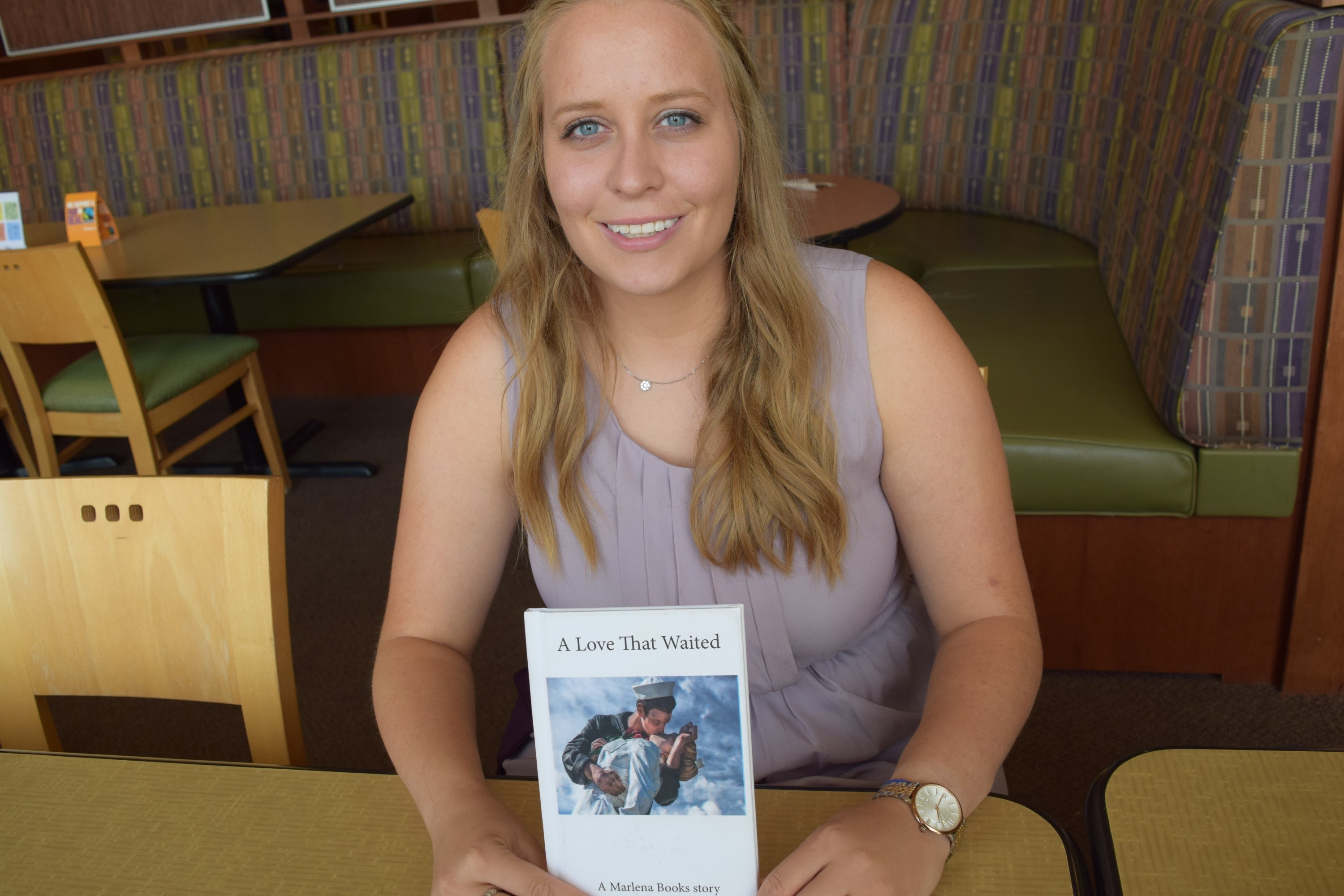St. Paul’s GreenHouse alumna Rachel Thompson has 30 long-term care homes interested in a product she’s been developing for about a year: A series of books aimed at providing meaningful leisure and cognitive stimulation to individuals with dementia through reading.

Rachel Thompson’s journey to entrepreneurship started out innocently enough: She has a grandmother who is living with dementia, but who had previously been an avid reader. One day, Rachel realized that while her grandmother could not read standard novels because of her current cognitive ability, she could still read copy with larger print and simplified language. However, when Rachel tried to find reading material with adult subject matter in a simplified format, she realized these types of books did not exist.
Rachel had never considered herself an entrepreneur, but she could not help see that there was a niche that needed to be addressed. With the help of a St. Paul’s GreenHouse Fellowship, she developed a venture, Marlena Books, that would focus on reading material with mature content, simplified stories, and thicker pages. Marlena Books could make reading enjoyable and dignified again.
Rachel has now completed both her Fellowship and her degree in Health Studies, but during her tenure at GreenHouse, Marlena Books tested the idea and prototype on individuals with dementia through a pilot with the Centre for Community Based Research, and had five stories written by local authors. Rachel has also been receiving sales mentorship from another social venture, Textbooks for Change, and will apply that knowledge when selling her titles to the long-care homes. Besides being a recipient of GreenHouse’s Social Impact Fund and other grants, Rachel won top prize at the Schlegel Village Innovation Den, and has made the Top 12 for the Spark Initiative, a project that supports young entrepreneurs.
In the meantime, Rachel is also running art programs in two long-term care homes in the region, which serve a dual purpose: To illustrate the Marlena books (abstract art works best because representative illustrations are more difficult to process for people with cognitive challenges), and to test whether the creation of the art itself is helpful to the patients.
She has done all this in one year.
Entrepreneurship is risky, and it’s scary, and you can read all the books, and take all the classes, and attend all the seminars, but there is no outline on how to do this: How to create something from nothing, how to build a team, how to deal with challenges, and how to have a social impact while doing that,” Rachel says.
“A quote that’s been sticking with me lately is, ‘Feel the fear and do it anyway.’ When I get scared, and filled with doubt on if what I’m doing is the right thing to do, if I’m making the right decision, I think about my grandmother, and the fear that she must feel. I wonder if she’s scared being confused with dementia. And then I think that if I could create a book for her to bring a little more familiarly to her life, if that would make it better, if that would help her face the fear. For me, that familiarity is St. Paul’s GreenHouse.”
Marlena Books now operates out of the Epp Peace Incubator at the Centre for Peace Advancement at Conrad Grebel. Rachel is furthering her interest in dementia care by taking on a research assistant position with the Murray Alzheimer Research and Education program at the University, where she will assist a team investigating how to engage people living with dementia in product design, testing, and commercialization.
Read a previous Spotlight about Rachel Thompson and Marlena Books